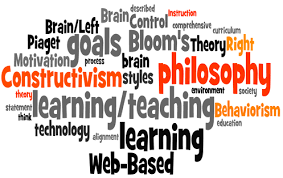
Becoming a member of a professional association is vital in sharing ideas within our academic community. There are several national, state and regional chapters available to join. Membership can be purchased and renewed yearly; full-time faculty at College of DuPage can request a reimbursement via a professional development and renewal fund prior approval form. Many associations sponsor events that facilitate connections with peers including national or local conferences, webinars and workshops. Being a part of professional associations strengthens our network and invites us to exchange best practices in the field. Forums, chat groups, listservs or discussion boards sponsored by the association are also a great way to talk with our peers about what is happening in our classrooms virtually and face to face.
Most associations provide resources such as case studies, articles, white papers and books written by experts in our area of interest. Journal and newsletter access is provided as a part of membership. Links to publications and awards are also shared within associations.
I am a member of the following professional associations in my field:
- National Council of Teachers of English
- National Association for Developmental Education
- International Reading Association
- American Education Research Association
- Council of Learning Assistance and Developmental Education Association
- American Association of Women in Community Colleges
- Society for Technical Communication
For online teaching, the Online Writing Instruction (OWI) Open Resource is an excellent site for information. This site is organized around these principles: overarching, instructional, faculty, institutional, research and exploration. The site provides examples of how each principle might be applied in real teaching and learning situations: http://www.ncte.org/cccc/resources/positions/owiprinciples
In addition, check out the Teaching Online Pedagogical Repository (TOPR) — a peer-reviewed scholarship of teaching and learning (SoTL) resource. It is a destination for faculty/designers in search of ideas for online and blended courses. Each entry is highly focused on one teaching practice with a solid description, concrete examples, professional practice, literature, and key words connecting to other practices: https://topr.online.ucf.edu/
And if you’re looking for a fantastic technology related program to attend this summer, there’s the Technology Institute for Developmental Educators (TIDE) at Texas State University: http://tide.ci.txstate.edu/
TIDE offers breakout sessions, hands on sessions and mentors discussing new technologies.
- Participate in mini-courses synchronously online; those with the @ sign below will be taught online synchronously along with those attending the course face-to-face
- Be mentored by a team of developmental educators as well as college faculty who use technology in their developmental education work as well as their core curriculum classes
- Bring technology projects you have been wanting to develop
- Return with how to integrate technology into your projects and a plan to complete other projects supported by TIDE mentors for a year
TIDE is geared toward:
- Developmental educators at or preparing for the postsecondary level (e.g., Early College, technical school, community college, junior college, four year college, university) who want to learn more about how to integrate technology into their and their students’ personal and professional lives.
- Core curriculum faculty who want to enhance their classrooms with technology and expand their instruction beyond their classrooms through mobile learning apps.
- All levels of expertise are welcome. While some of the mini-courses are labeled advanced, we will help beginners while addressing the needs of those with more experience.
- Windows, Android, and/or Mac desktop and mobile platforms users will be addressed, and please bring your own laptop, smartphone, and/or tablet.
- Propose projects and receive expert support in each of the five mini-courses for which you are enrolled.